Los Angeles, CA – Activision, the maker of the popular video game “Guitar Hero,” filed a declaratory judgment complaint asking the Court to rule that the video game does not infringe on Gibson Guitar’s patent. Gibson is the owner of U.S. Patent No. 5,990,405 (“the ‘405 Patent”), titled “System and Method For Generating and Controlling a Simulated Musical Experience.” In January of 2008, patent attorneys for Gibson informed Activision that the Guitar Hero video-game infringed the ‘405 Patent and offered a license. Apparently Activision was already licensing trademarks owned by Gibson and the parties had a continuing business relationship for several years.
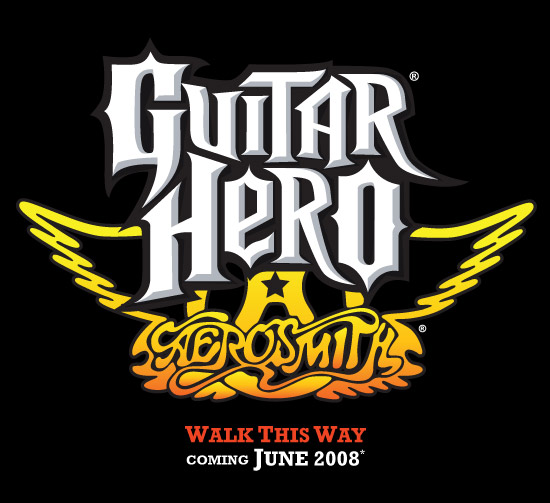 Licensing negotiations hit a sour note and Activision filed the instant complaint asking the District Court in Los Angeles to rule that the ‘405 Patent is invalid and/or not infringed by the Guitar Hero video-game. Activision also alleges that because Gibson has been aware of the Guitar Hero video-game for many years and has encouraged its sale, that Gibson should be estopped from asserting the patent. Also, because Gibson has encouraged the sale of the games, Activision argues that it has an implied license under the ‘405 patent. Further, Activision alleges that because Gibson has been fully aware of the Guitar Hero video-game for several years, it should not be able to enforce the patent under the doctrine of laches. The case is titled Activision Publishing, Inc. v. Gibson Guitar Corporation, CV08-01653 PSG (C.D. California).
Licensing negotiations hit a sour note and Activision filed the instant complaint asking the District Court in Los Angeles to rule that the ‘405 Patent is invalid and/or not infringed by the Guitar Hero video-game. Activision also alleges that because Gibson has been aware of the Guitar Hero video-game for many years and has encouraged its sale, that Gibson should be estopped from asserting the patent. Also, because Gibson has encouraged the sale of the games, Activision argues that it has an implied license under the ‘405 patent. Further, Activision alleges that because Gibson has been fully aware of the Guitar Hero video-game for several years, it should not be able to enforce the patent under the doctrine of laches. The case is titled Activision Publishing, Inc. v. Gibson Guitar Corporation, CV08-01653 PSG (C.D. California).
 Los Angeles Intellectual Property Trademark Attorney Blog
Los Angeles Intellectual Property Trademark Attorney Blog


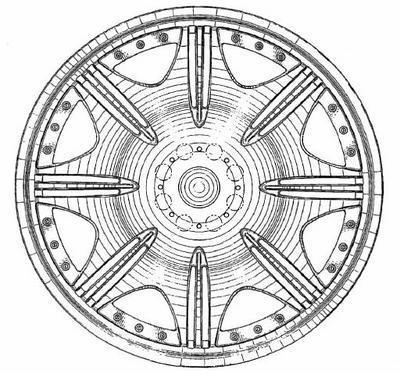
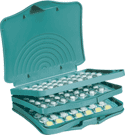 Watson has beaten the patent owners to the punch and filed a declaratory judgment action because it believes that it will be sued for patent infringement. Watson seeks a declaration from the Court that the patent is “is invalid, unenforceable and/or not infringed by the commercial manufacture, use or sale of the drub product described in Watson’s ANDA.” The case is titled Watson Laboratories, Inc., v. Duramed Pharmaceuticals, Inc., SACV08-0243 JVS (C.D. California).
Watson has beaten the patent owners to the punch and filed a declaratory judgment action because it believes that it will be sued for patent infringement. Watson seeks a declaration from the Court that the patent is “is invalid, unenforceable and/or not infringed by the commercial manufacture, use or sale of the drub product described in Watson’s ANDA.” The case is titled Watson Laboratories, Inc., v. Duramed Pharmaceuticals, Inc., SACV08-0243 JVS (C.D. California).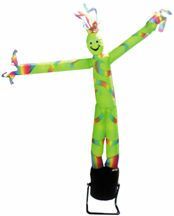 Plaintiff alleges that several defendants are infringing its patent by making, selling, and using undulating figure products embodying the patented invention. Plaintiff also states that defendants are infringing on its “Fly Guy” trademark by using the confusingly similar “Fly Guys” trademark. In addition, Plaintiff contends that the defendants are using its “Fly Guy” trademark as a Google adword to redirect consumers to defendants’ websites. The complaint asserts causes of action for infringement; federal trademark infringement of registered trademark (15 U.S.C. §§ 1114-1117; Lanham Act § 32); federal unfair competition (false designation of origin and false description (Lanham Act 43(a) and 15 U.S.C. 1125); trademark infringement under California law; California unfair competition under section 17200; and trademark dilution. Plaintiff alleges that the infringement is willful and intentional and requests that the damages be trebled. The case is titled Air Dimensional, Inc., v. Action Sky Dancers, CV08-01121 GW (C.D. California).
Plaintiff alleges that several defendants are infringing its patent by making, selling, and using undulating figure products embodying the patented invention. Plaintiff also states that defendants are infringing on its “Fly Guy” trademark by using the confusingly similar “Fly Guys” trademark. In addition, Plaintiff contends that the defendants are using its “Fly Guy” trademark as a Google adword to redirect consumers to defendants’ websites. The complaint asserts causes of action for infringement; federal trademark infringement of registered trademark (15 U.S.C. §§ 1114-1117; Lanham Act § 32); federal unfair competition (false designation of origin and false description (Lanham Act 43(a) and 15 U.S.C. 1125); trademark infringement under California law; California unfair competition under section 17200; and trademark dilution. Plaintiff alleges that the infringement is willful and intentional and requests that the damages be trebled. The case is titled Air Dimensional, Inc., v. Action Sky Dancers, CV08-01121 GW (C.D. California).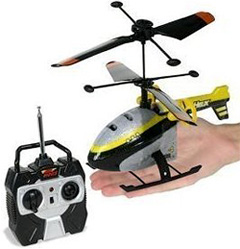 The defendants, Soft Air USA, Inc. and a subsidiary of Sports Authority, are accused of copying and selling toy helicopters that infringe on Plaintiffs’ Air Hogs® Havoc Heli™ Helicopter’s patents and copyrights. Plaintiffs allege that Defendants’ helicopters are identical to the Air Hogs® Havoc Heli™ Helicopter that “Defendants’ knock off helicopters were recently recalled after an investigation by the Consumer Product Safety Commission in response to consumer complaints that the rechargeable battery packs were catching fire.” Plaintiffs continue that they were “bombarded with calls from customers who mistakenly believed that Defendants’ inferior and dangerous knock off product was made by Silverlit.” Plaintiffs allege that customers believed that the Defendants’ voluntarily recall included the Air Hogs® Havoc Heli™ Helicopter and returned the genuine product to Plaintiffs. The case is styled as: Silverlit Toys Manufactoy, LTD v. Soft Air USA, Inc., CV08-01053 JFW (C.D. California).
The defendants, Soft Air USA, Inc. and a subsidiary of Sports Authority, are accused of copying and selling toy helicopters that infringe on Plaintiffs’ Air Hogs® Havoc Heli™ Helicopter’s patents and copyrights. Plaintiffs allege that Defendants’ helicopters are identical to the Air Hogs® Havoc Heli™ Helicopter that “Defendants’ knock off helicopters were recently recalled after an investigation by the Consumer Product Safety Commission in response to consumer complaints that the rechargeable battery packs were catching fire.” Plaintiffs continue that they were “bombarded with calls from customers who mistakenly believed that Defendants’ inferior and dangerous knock off product was made by Silverlit.” Plaintiffs allege that customers believed that the Defendants’ voluntarily recall included the Air Hogs® Havoc Heli™ Helicopter and returned the genuine product to Plaintiffs. The case is styled as: Silverlit Toys Manufactoy, LTD v. Soft Air USA, Inc., CV08-01053 JFW (C.D. California).
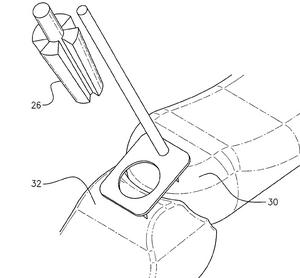

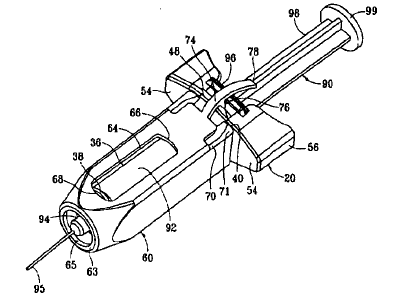 Safety Syringes asserted the same three patents, Nos. 6,613,022, 7,101,355, and 7,300,420, in Los Angeles District Court in April of 2007 against Plastef. That case is titled: Safety Syringes, Inc. v. Plastef Investissements, 07-CV-2307 (C.D. CA 2007). Sanofi alleges that it imports and uses a needle safety shield device that is similar to the device in the Plastef case. Thus, because Safety Syringes has asserted claims of inducement and contributory patent infringement in the Plastef case, Sanofi-Aventis believes that it is being accused of infringing the three patents and that an actual controversy exists between the parties. Sanofi alleges that Safety Syringes has put Sanofi in a “position of pursuing behavior that [Safety Syringes] would allege constitutes an infringement or of abandoning a course of action which Aventis believes it has a lawful right to pursue.”
Safety Syringes asserted the same three patents, Nos. 6,613,022, 7,101,355, and 7,300,420, in Los Angeles District Court in April of 2007 against Plastef. That case is titled: Safety Syringes, Inc. v. Plastef Investissements, 07-CV-2307 (C.D. CA 2007). Sanofi alleges that it imports and uses a needle safety shield device that is similar to the device in the Plastef case. Thus, because Safety Syringes has asserted claims of inducement and contributory patent infringement in the Plastef case, Sanofi-Aventis believes that it is being accused of infringing the three patents and that an actual controversy exists between the parties. Sanofi alleges that Safety Syringes has put Sanofi in a “position of pursuing behavior that [Safety Syringes] would allege constitutes an infringement or of abandoning a course of action which Aventis believes it has a lawful right to pursue.”